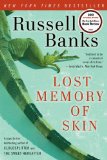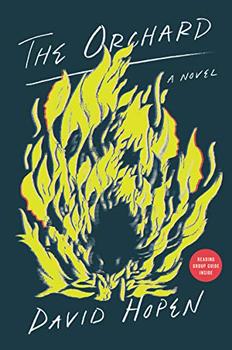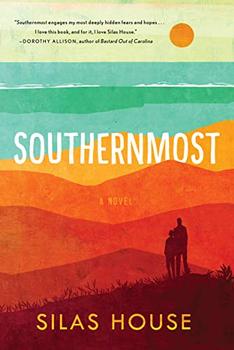Summary | Excerpt | Reviews | Beyond the book | Read-Alikes | Genres & Themes | Author Bio

A Novel
by Russell BanksIn the early days of the Garden of Eden, when Adam was still the lone inhabitant, God gathered all the beasts of the field and birds of the air and brought them to him to "see what he would call them; for that which the man called each of them would be its name." Adam had the responsibility of naming them for all the world and for all eternity. In modern times, the creation of the National Sex Offender Registry accomplished a similar deed with convicted sex offenders, identifying them for all the world via the internet. A comparison of the creatures in the Garden of Eden with sex offenders hardly seems practicable - possibly even offensive - but Russell Banks constructs a multi-layered, engrossing character study embedded within a Garden of Eden parable in his novel, Lost Memory of Skin, about a convicted sex offender who longs for innocent times.
Living in a tent under a bridge is no one's idea of Eden, but that's where Banks's protagonist, the Kid, finds himself after his release from prison, cast out and forbidden by law from living within 2,500 feet of any location where children may gather. He has only two friends in the world, a six-foot long pet iguana named Iggy, and the GPS tracking bracelet wrapped around his ankle and appropriately called the "TrackerPAL."
Banks's novels tend to be character-driven with protagonists on the fringes of society, and the Kid certainly checks that box. He is the exact opposite of the Professor, a local academic who is studying homelessness and befriends the Kid. The Professor is in his early 60s, "morbidly obese," obviously educated, and a pillar of his community. They are completely dissimilar - small/large, good/bad, right/wrong... at least that's the way it seems.
The personal histories and the individuality of both the Kid and the Professor are revealed in retrospective vignettes; their names are never given, forcing the reader to take them at face value - the Kid an immature man, the Professor a respected scholar.
Over the course of the story, the voice of the narrator varies from breezy and vulgar to educated and refined. It's as if the narrator assumes the persona of the character, becoming an omniscient alter ego lending an air of authority to their respective personal histories - as though the Kid and the Professor are telling their own stories. It's Russell Banks at his finest; the slow stripping away of the characters' facades renders the plot almost unessential; the characters become the story.
Parables offer a learning experience, and the Kid ends up a wiser person. He dreams of a time in history when there were "no skyscrapers, no hotels, no miles and miles of condo developments..." It's Eden - an innocence - that he wants, but he realizes it will never be, never again. His desires have evolved from carnal to spiritual.
The story drags a bit when the Professor attempts to organize the sex offenders into a community, and the Eden references become heavy handed. But these are minor stumbles in an otherwise taut presentation. Most novels have a hero of some sort, but this author doesn't limit himself with such a conventional literary device. There are no heroes here, only predators and victims, and sometimes they are one and the same. Banks has provided yet another masterful glimpse into the shady side of life, but it takes a little shade to appreciate the sunshine.
![]() This review was originally published in The BookBrowse Review in November 2011, and has been updated for the
July 2012 edition.
Click here to go to this issue.
This review was originally published in The BookBrowse Review in November 2011, and has been updated for the
July 2012 edition.
Click here to go to this issue.

If you liked Lost Memory of Skin, try these:

by David Hopen
Published 2021
A commanding debut and a poignant coming-of-age story about a devout Jewish high school student whose plunge into the secularized world threatens everything he knows of himself.

by Silas House
Published 2019
In this stunning novel about judgment, courage, heartbreak, and change, author Silas House wrestles with the limits of belief and the infinite ways to love.
Your guide toexceptional books
BookBrowse seeks out and recommends the best in contemporary fiction and nonfiction—books that not only engage and entertain but also deepen our understanding of ourselves and the world around us.